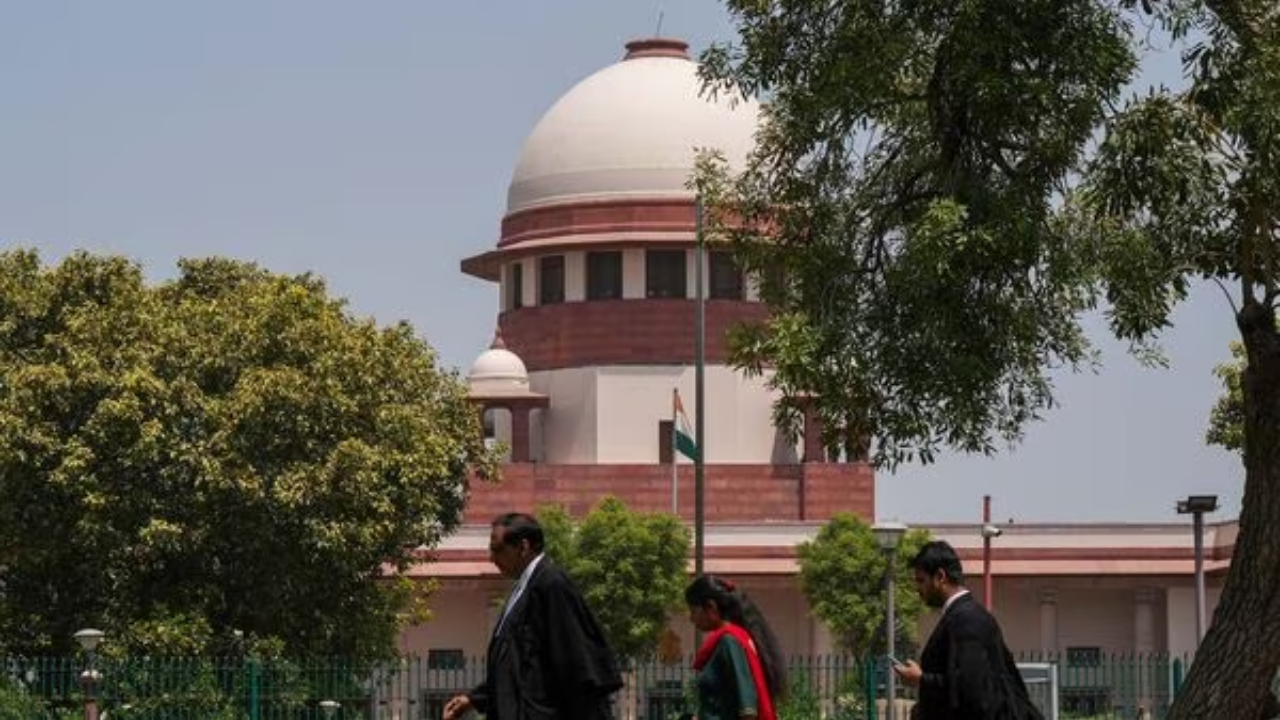CJI DY Chandrachud and Justice Sanjay Kishan Kaul articulated their minority stance on Tuesday, acknowledging civil unions as comparable to marriage for same-sex couples and affirming the right to joint adoption. Their differing opinion stood in contrast to the majority decision of three judges, which did not recognize the right of queer couples to have civil unions.
The Supreme Court’s five-judge bench ruling, issued in response to a series of petitions advocating for marriage rights for the LGBTQIA+ community under the 1954 Special Marriage Act, highlighted the dissenting perspective. Although concurring with the three judges, the minority opinion refrained from invalidating the provisions of the Special Marriage Act (SMA) or interpreting them inclusively for non-heterosexual couples, instead deferring the matter to the Parliament for resolution.
“The institution of marriage is not universally defined, nor is it unchanging. It is the prerogative of Parliament and state legislatures, under Articles 245 and 246 of the Constitution, in conjunction with Entry 5 of List III to the Seventh Schedule, to establish laws recognizing and regulating queer marriage,” the minority opinion asserted.
CJI emphasized that queerness is a natural phenomenon, not confined to urban or elite communities. In permitting joint adoption for same-sex couples, it was noted that the assumption made by CARA, that only married couples can offer a stable household, lacks substantial backing. The CJI emphasized, “While married couples may provide stability, not all married couples are automatically capable of providing a stable home. Similarly, unmarried relationships cannot be assumed to be inherently unstable. Marriage is not the sole foundation for families and households.”
Furthermore, the minority verdict emphasized that the law should not presume the quality of parenting based on an individual’s sexual orientation, as this fosters a prejudiced stereotype, prohibited by Article 15 of the Constitution. The CJI stressed the obligation of the state to recognize the rights of queer couples, advocating for the extension of benefits under the law.
In a separate opinion, the CJI highlighted the right of transgender individuals in heterosexual relationships to marry under existing laws, including personal laws governing marriage. Justice Kaul supported this viewpoint, emphasizing the far-reaching impact of altering the scope of marriage under the Special Marriage Act (SMA), suggesting a comprehensive regulatory framework for non-heterosexual unions.
“Non-heterosexual unions and heterosexual unions/marriages should be viewed as equivalent in terms of recognition and accompanying benefits,” Justice Kaul stressed, highlighting the need for a suitable regulatory framework to address historical discrimination. This, he suggested, should be the subsequent step, fostering a system that enables the meaningful realization of the right to enter into a union, whether termed as marriage or otherwise.
Also Read: Annamalai Hits Out at DMK, Terms Udhayanidhi Stalin as “Crown Prince”
Catch all the Latest Business News, Breaking News Events, and Latest News Updates on NewsX






















